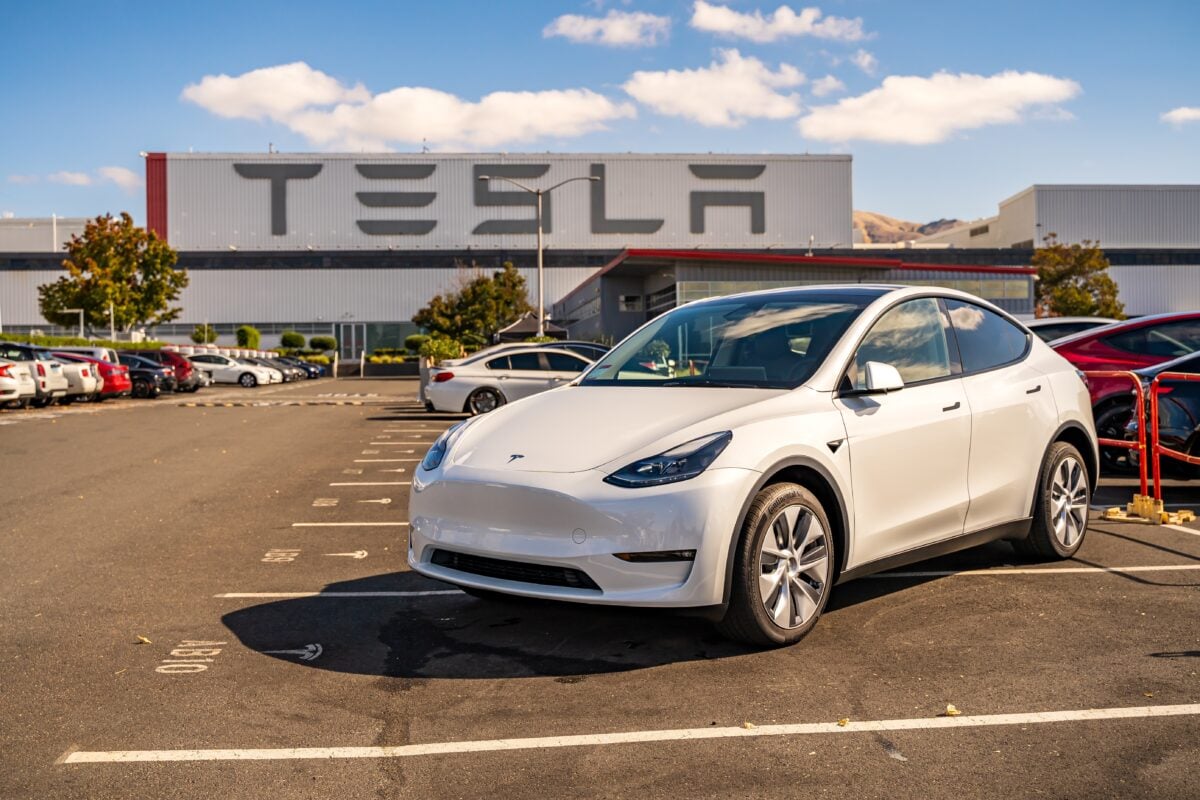TLDRs;
Contents
- Tesla’s European market share fell to 0.8% in July, as BYD captured 1.2% with rapid growth.
- BYD sales surged 225.3% in Europe, signaling rising competition for Tesla and traditional carmakers.
- EV adoption soared in Europe, with electrified vehicles accounting for nearly 60% of new registrations.
- Tesla faces similar challenges in China, launching localized models as rivals like Xiaomi gain momentum.
The global electric vehicle (EV) race is shifting gears, and Tesla is no longer the undisputed front-runner in Europe.
According to new data from the European Automobile Manufacturers Association (ACEA), Tesla’s market share in the region dropped sharply in July 2025 to just 0.8%, down from 1.4% a year earlier.
Meanwhile, Chinese automaker BYD made a strong entrance, surpassing Tesla in European car sales for the month.
BYD’s breakthrough moment in Europe
BYD’s inclusion in the ACEA monthly report for the first time underscored just how quickly the Chinese manufacturer is expanding into new markets. The company’s sales in the European Union, the UK, and the European Free Trade Association surged by an astonishing 225.3% in July, granting BYD a 1.2% market share.
While this may look small compared to giants like Volkswagen, the momentum highlights how Chinese EV makers are challenging Tesla’s dominance outside of China.
Industry experts say BYD’s growth stems from its competitive pricing and broad EV lineup, which includes not only cars but also buses and trucks. By contrast, Tesla has struggled to maintain its pace in Europe despite being an early mover in the region.
Volkswagen and Renault post solid gains
The July report wasn’t entirely about Tesla’s decline. Traditional European manufacturers showed signs of resilience, with Volkswagen reporting an 11.6% increase in registrations and Renault seeing an 8.8% rise compared to the previous year. Stellantis, however, recorded a slight drop of 1.1%.
Perhaps the most notable trend is the rapid adoption of electrified vehicles overall. Battery-electric car registrations in Europe rose by 39.1%, hybrid sales surged by 56.9%, and plug-in hybrids increased by 14.3%.
Collectively, electrified vehicles now make up nearly 60% of all new car sales across the EU, reflecting the continent’s accelerating transition away from internal combustion engines.
Tesla struggles amid global competition
Tesla’s decline in Europe comes as the company is facing mounting challenges worldwide. In China, its second-largest market, Tesla recently announced plans to launch a new six-seat Model Y L with a longer wheelbase, as well as a longer-range Model 3.
The move is widely seen as a response to growing pressure from local rivals such as Xiaomi, whose newly launched YU7 SUV generated 200,000 pre-orders within just three minutes of release.
Tesla’s China-made EV sales fell 8.4% in July, highlighting how the price war in the country has eroded its market position. With Xiaomi and other local automakers offering vehicles with greater range and lower prices, Tesla is being forced to adapt by localizing its products more aggressively.
The bigger picture for the EV industry
The rise of BYD in Europe and the intensifying competition in China point to a broader trend: Tesla’s dominance in the global EV sector is no longer guaranteed.
While it remains a significant player with strong brand recognition, new challengers are emerging rapidly, reshaping the competitive landscape.
Europe’s data shows that consumers are embracing EVs at unprecedented levels, but they are no longer limited to Tesla’s offerings. Meanwhile, China’s hyper-competitive environment serves as a warning for all global automakers, sustained success will require more than early-mover advantage. Price wars, product differentiation, and government regulation are now central to the industry’s future.


